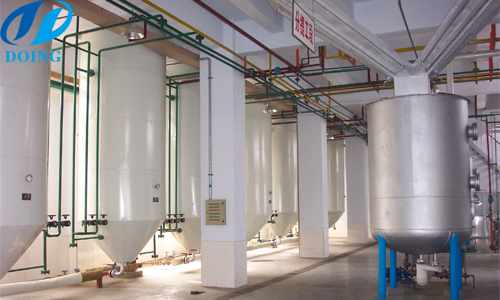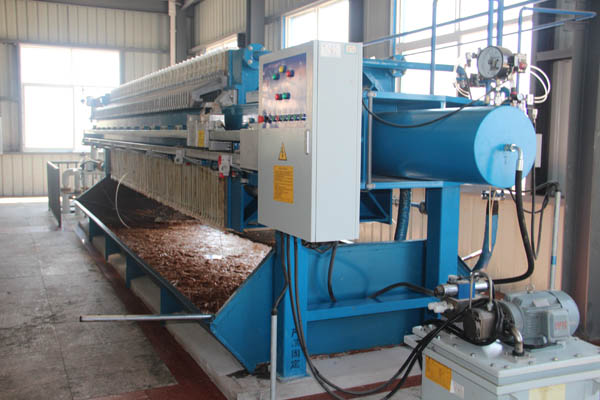
Winterization/dewaxing
Waxiness impacts palatability of oil; winterization/dewaxing focus on increasing palatability of oil and impoving organoleptic properties such as transparency, brightness, etc. Waxiness content of different oils varies; winterization/dewaxing is necessary to oils like corn oil, rice bran oil, sunflower seed oil, cotton seed oil, etc.
In general, freezing crystallization is widely used in winterization/dewaxing. In another word, reduce oil temperature and crytallize waxiness at first, and separate solid waxiness from liquid oil mechanically. Different oils have different crystallization point, so they need different crystallization speed, temperature, crystallization period, and filter method.
In general, freezing crystallization is widely used in winterization/dewaxing. In another word, reduce oil temperature and crytallize waxiness at first, and separate solid waxiness from liquid oil mechanically. Different oils have different crystallization point, so they need different crystallization speed, temperature, crystallization period, and filter method.
 Fractionation
FractionationIn naturally occurring edible oils and fats there are a range of fatty acids involved with the triglycerides. These fatty acids can be saturated, unsaturated, long chain or short chain and in themselves have different melting points. Fractionation can then enable products with less impurities and more specific solid/liquid characteristics to be produced with better functionality in the product and therefore of a higher value.
In edible oil processing, a fractionation process consists of a controlled cooling of the oil, thereby inducing a partial, or ‘fractional’, crystallization. The remaining liquid (olein) is then separated from the solid fraction (stearin) by means of a filtration or centrifugation.
Theoretically, winterization/dewaxing is different from fractionation. However, they have the same technical process, same with the equipments needed.
Different oils need different process to get better quality. Our engineer can help you choose most suitable line according to your raw material and requirements. If you want to know more about oil processing plant, please feel free to contact us.
learn more
